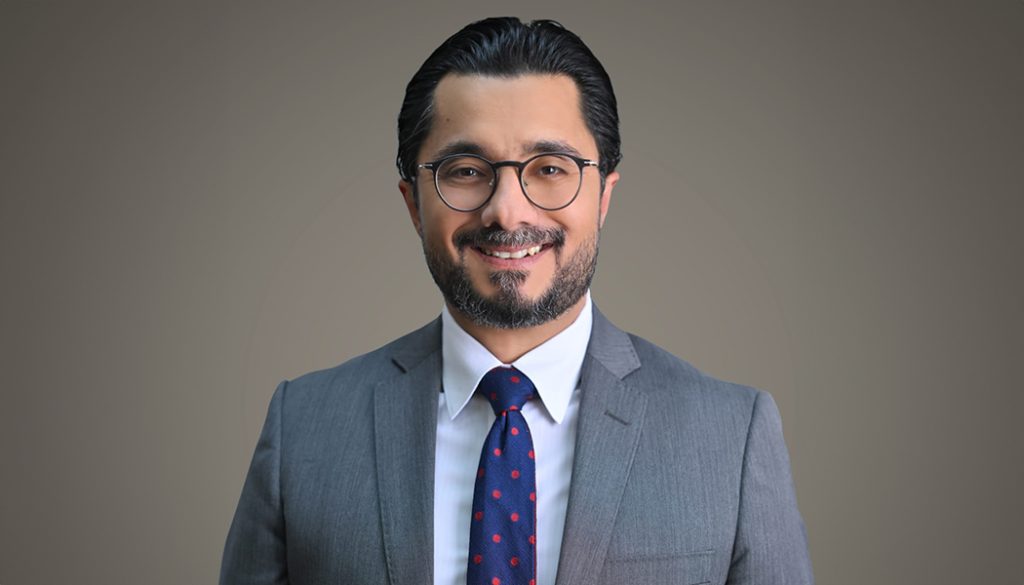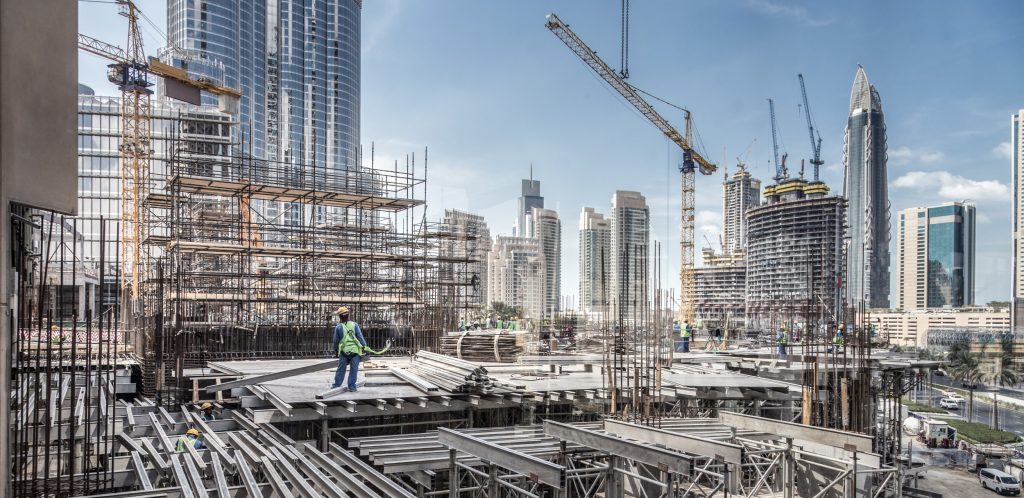Building Stronger Contracts: Mustafa S. Khattab on Dispute Resolution in the UAE Construction Industry by Mustafa S. Khattab.
In this exclusive interview, Mustafa S. Khattab, a seasoned Senior Contracts Manager with over 20 years of experience in construction law and dispute resolution, shares his insights into the complexities of managing claims and contracts within the fast-paced and dynamic UAE construction sector. Mustafa discusses the unique legal and cultural factors influencing dispute resolution, explores the rising prominence of Alternative Dispute Resolution (ADR) methods like arbitration and mediation, and offers expert advice for project managers and contractors navigating the complexities of large-scale projects. With a deep understanding of both the technical and legal aspects of construction contracts, Mustafa sheds light on the future trends shaping the industry, particularly with the integration of new technologies and sustainable building practices.

Mustafa S. Khattab
What motivated you to specialize in claims and contracts management, particularly within the context of dispute resolution in the UAE construction industry?
The UAE's legal blend of civil and Shari'a law elements, along with the evolving landscape for resolving disputes, offers an exciting and challenging field. This is my inspiration for focusing on claims and contracts management in the UAE construction industry. The accelerated pace of construction in the UAE results in complex contractual structures, coupled with substantial claims, all of which warrant additional attention to detail and strategy. The UAE is also moving in this direction, urging its stakeholders to embrace Alternative Dispute Resolution (ADR) methods, such as arbitration and mediation. Mutually satisfying solutions have long been an area of international interest. This enables me to focus on my technical expertise, understanding of the law, and negotiation abilities to play a meaningful role in helping clients resolve disputes effectively and fairly. Additionally, it is both inspiring and professionally fulfilling to be part of a system that sets a regional standard for innovation and equity in dispute resolution.
With your expertise in dispute resolution, what are the most common types of disputes you encounter in construction contracts in the UAE?
The most common types of disputes I encounter typically fall into the following key categories:
Delay and Extension of Time (EOT) Claims
Variations and Change Orders
Termination of Contract
Liquidated Damages
Force Majeure and Unforeseen Events
These disputes are often driven by high risks, tight schedules, and complex contractual frameworks.
How do cultural and legal differences in the UAE influence dispute resolution strategies compared to other regions?
Legally, compared to common law jurisdictions where precedent plays a major role, the UAE courts rely more on codified statutes, which affects how contract terms, especially clauses like force majeure and liquidated damages, are interpreted. These differences highlight the importance of drafting clear contract conditions. It also emphasizes how alternative dispute resolution methods are becoming increasingly welcomed in mega and complex projects in the UAE.
Culturally, relationships and trust play a significant role, as parties may seek to maintain long-term relationships and avoid direct conflict. Negotiation and mediation tend to be preferred in the early stages of disputes, rather than escalating them to formal legal proceedings.
Can you walk us through your approach to assessing a dispute and determining the best course of action for resolution?
My methodology follows a well-organized framework to thoughtfully address the issues at hand. It begins with a comprehensive understanding of the situation, which involves an in-depth review of all relevant facts, evidence, and legal considerations. This analytical stage is crucial as it lays the foundation for informed decision-making.
Next, the focus shifts to thoroughly assessing the underlying dispute. This involves unravelling the complexities of the situation and considering the interests of all parties involved, ensuring that no aspect is overlooked.
Following this assessment, the process moves toward identifying the most suitable resolution method. This step is pivotal in selecting a strategy that aligns with the dispute's distinct circumstances and the stakeholders' needs.
Once a resolution method is determined, the emphasis is placed on fostering collaborative and transparent communication. Open discussions are initiated to ensure that all parties have the opportunity to express their views and concerns, promoting an atmosphere of mutual respect and understanding.
As options are evaluated, each choice is carefully considered with the goal of finding a resolution that meets everyone's interests. This iterative process culminates in the formalization of agreements, creating a solid basis for all parties to move forward with confidence and clarity.
By adhering to this structured approach, the process promotes fairness, enhances clarity, and cultivates a deeper mutual understanding among all stakeholders involved.
What role does effective communication play in preventing disputes, and how do you foster open dialogue among stakeholders?
Effective communication plays a pivotal role in minimizing project risks and, consequently, potential disputes. By creating an environment of active listening and engaging in empathetic discussions, concerns can be addressed, and misunderstandings mitigated. Approaching conflicts with collaboration and transparency allows parties to navigate disputes more constructively and reach mutually agreeable resolutions.
In your experience, how do alternative dispute resolution methods, such as mediation and arbitration, compare to traditional litigation in the UAE?
In recent years, the UAE has taken steps to become a hub for international ADR by establishing reputable international free zones (DIFC and ADGM) and dedicated arbitration centers that adopt international standards. Additionally, the legislation has been enhanced to support the enforcement of these centers’ awards within the local judicial system. In the same vein, the mediation field has gained traction in the local market's ADR sector. This is reflected in the establishment of the Centre for Amicable Resolution of Disputes in Dubai, launched in cooperation with Dubai Courts to provide mediation services within a specific period before referring cases to the courts for the usual legal process.
What advice would you give to project managers and contractors to help them minimize the risk of disputes during a project's lifecycle?
Identifying project risks from the outset is the most essential action to take. This can be achieved by defining the project objectives, scope, and special or complex elements, while analyzing the associated risks and planning for risk response. To ensure its effectiveness, the plan must be monitored and controlled throughout the project lifecycle. This requires maintaining open and effective communication channels among all stakeholders.
Looking to the future, what trends do you foresee in claims and dispute resolution practices in the UAE construction sector, especially with the rise of new technologies?
The construction industry in the UAE has undergone significant changes in recent years, with innovation and sustainability at the forefront of development. As we look toward 2024, trends in the construction sector are expected to continue growing and shape the future of construction in the UAE. The Green Building trend, for example, has gained momentum over the past few years, and its impact is predicted to increase as awareness of environmental issues rises. Additionally, the use of technology in construction has become progressively popular, with AI playing a crucial role in controlling processes such as planning, design, cost estimation, quality control, and scheduling. AI can help identify issues that humans might miss and provide accurate calculations regarding project costs or timelines. This will enhance the quality of project documents and potentially reduce the number of claims and dispute areas.
While these trends will benefit the growth of the construction industry and reduce the scope for disputes, they will also generate new types of claims that will require special attention and a stronger emphasis on alternative dispute resolution methods to streamline legal processes.
In conclusion, the future of claims and dispute resolution practices in the UAE will likely be shaped by a combination of legal improvements, technological advancements, and industry trends to meet the needs of the rising and dynamic construction sector.
About Mustafa S. Khattab
Mustafa is a Senior Contracts Manager with over 20 years of extensive experience in contracts and commercial management. Holding a degree in construction law and dispute resolution, he has honed his expertise in both pre- and post-contract stages, with a particular focus on claims and dispute resolution.
Throughout his career, Mustafa has had the unique opportunity to work with a diverse range of national and international firms in both the private and public sectors. This experience has provided him with a comprehensive understanding of the complexities of contract management in various environments. He has been deeply involved in contract and claims management, establishing frameworks that protect his clients’ interests while fostering collaborative relationships.
His academic background has shaped his approach, enabling him to navigate the legal landscape with confidence and clarity. As a trusted advisor, Mustafa successfully supports clients in settling large-scale claims amicably, skillfully navigating negotiations to achieve mutually beneficial outcomes.
Mustafa S. Khattab BArch, MSc Const. Law, MCIArb, MiBArb
Senior Manager – Contracts
AD Airports
Tel: +971 55 5520487
www.linkedin.com/in/Mustafa-Khattab





















